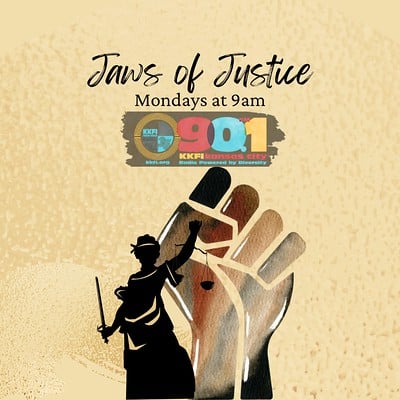What Makes A Crime A Hate Crime?
When the Fraiser Glen Miller killed two people at the Jewish community Center and another at the Village Shalom Retirement Home in Overland Park a few months ago it quickly became apparent that these murders were motivated by hate. What does that mean when the accused is charged and how does the prosecutor determine what charges to bring?
Margot Patterson talks with Mark Potok, a Senior Fellow at the Southern Poverty Law Center about the anatomy of a hate crime and why there is such a designation. They talked about the numerous groups that are designated as hate groups and how they got that designation as well as the actions that make a crime a hate crime.
The Southern Poverty Law Center is dedicated to fighting hate and bigotry and to seeking justice for the most vulnerable members of our society. Using litigation, education, and other forms of advocacy, the Center works toward the day when the ideals of equal justice and equal opportunity will be a reality.
You can find out more about them at http://www.splcenter.org/ and you can find out about the hate groups in your state at http://www.splcenter.org/get-informed/hate-map to Contact them offline: send mail to 400 Washington Ave, Montgomery, AL 36104 or phone them at (334) 956-8200 or Toll-Free at (888) 414-7752.
**If you contact them by mail, please do not send any ORIGINAL documents with your correspondence. They are not able to return these documents to you.
Connecting For Good
Host Allie Catherine Bush talks with Michael Limatta, Co-Founder and President of Connecting For Good about their mission to close the digital divide.
Connecting For Good is a nonprofit organization that has been bridging the Digital Divide since 2011 with wireless networks, low cost refurbished PCs and free digital life skills classes. Why do they do this? Because 25% of Kansas City area residents don’t have broadband Internet access at home. (3-5 Mb), 42% of those who don’t use the Internet have annual household incomes of under $25,000, most of whom live in low income housing, 46% of nonusers are minorities and 70% of Kansas City Public Schools students do not have the Internet in their homes.
The basic free digital life skills classes are conducted every week:
Thursday & Friday at 10:00 am to noon, 3101 Troost Avenue, Kansas City, MO.
Tuesday & Wednesday 12:30 – 2:30 pm, 2006 N 3rd Street, Kansas City, KS
The A Class is a basic introduction to computers and the Internet. The B Class focuses on beginning Internet skills such as e-mail and web browsing. Class size is limited, so you need to make a reservation in advance. Everyone needs to arrive a half an hour early for the A Class, which is required to take the B Class. Participants who qualify may purchase a high quality refurbished computer for as little as $50.00.
In addition to these classes, they are conducting additional sessions at various locations throughout the community. Call (816) 559-7077 for information or to register for classes.
Calendar
Children of Incarcerated Parents summer food program will start Monday, June 30th. Their Harvesters’ Kids Café will serve all children ages 18 and younger free nutrition’s meals. Also, free meals will be provided to individuals’ ages 18-21 that are determined by a state agency to be physically or mentally disabled. Lunch will be served Monday through Friday from 12pm-1pm, and Dinner 4pm-5pm at 6285 Paseo, KCMO. If you have any questions regarding this program please call 816-517-9504.
_________________
You are invited to the ACLU of Missouri’s Annual Meeting, Saturday, June 28, at their St. Louis office. This is the meeting where members elect the directors and board members to oversee their affiliate. Attendees will also receive an update on the work of the ACLU of Missouri.
The 2014 Annual Meeting is open to the public, Saturday, June 28 from 1 to 3 p.m., 454 Whittier Street, St. Louis, MO 63108. They ask that you R.S.V.P. To [email protected] if you plan to attend. Light refreshments will be served. _________________
A quick update to the Food Sharing ordinance we spoke to Richard Tripp about a couple week ago. This ordinance would have brought anyone providing free food to the public (poor/homeless) to meet many of the same requirements applied to those who are preparing food for sale.
This would have required people baking food for bake sales at public events, church ladies who were providing food to feed anyone that is hungry or anyone else that is providing food to the public for free to be permitted and meet kitchen inspection requirements as if they were preparing food for sale. However if the same church ladies were preparing the same food in the same kitchen to be served to the congregation or to a closed group the regulations would not apply. in particular smaller service organizations, churches and individuals saw this as an attempt to either tax them for doing good or eliminate their activities all together.
After more than an hour debate on the City Council floor and a failed attempt to send the ordinance back to committee, the ordinance was voted down. Although the supporters claimed they had come to consensus with all sides it was apparent that there were a number of groups that had not been part of the process and they had objections. It had become clear that neither those opposed or those for the ordinance would be changing their votes. It is unclear if the ordinance will be amended and reintroduced.



